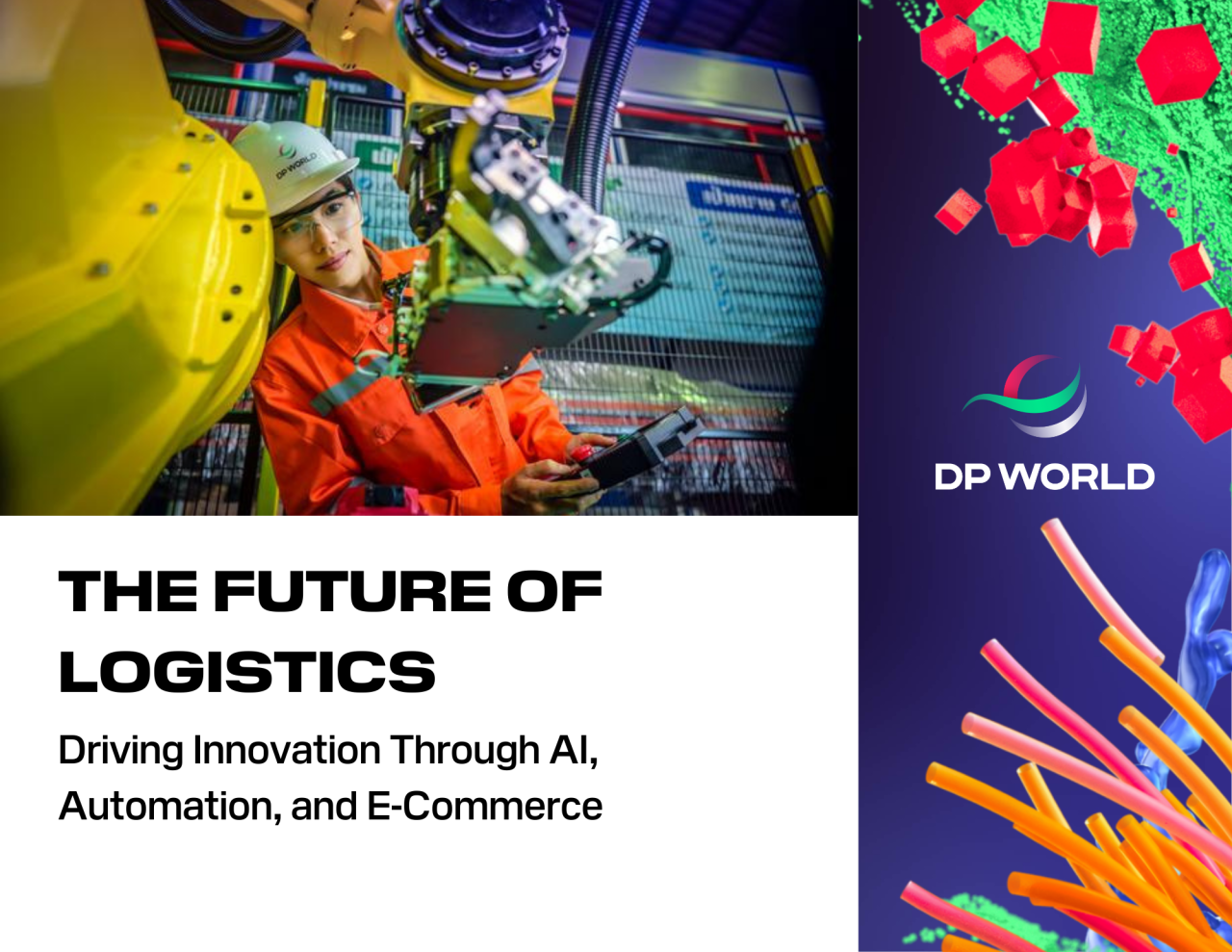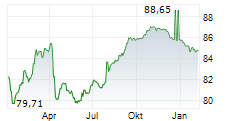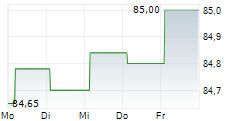NORTHAMPTON, MA / ACCESS Newswire / April 29, 2025 / Imagine a logistics industry free of inefficiencies, seamlessly adapting to disruptions, and delivering unmatched value to supply chains. This isn't just a dream - it's the future DP World is building today. The future of logistics isn't just about evolution; it's about revolution. With advancements like artificial intelligence (AI), automation, and e-commerce expansion, the industry is redefining how products move around the globe. Companies that act today will lead tomorrow.

For supply chain professionals and logistics managers, this discussion isn't theoretical - it's actionable. Addressing major challenges like labor shortages, infrastructure limitations, and supply chain disruptions can no longer be delayed. Here's how forward-thinking businesses are solving these problems and staying ahead in an industry on the brink of transformation.
Challenges in the Logistics Industry Today
The sector faces several critical hurdles, but overcoming them is vital for long-term success:
Labor Shortages
The logistics industry is facing a serious labor shortage. Glen Clark, CEO of DP World U.S./Mexico, addresses this topic in his most recent article for the Fast Company Executive Board. As the industry grows and evolves, it is becoming increasingly sophisticated, requiring workers with new skills and responsibilities.
With turnover of logistics employees up by 33% compared with pre-pandemic figures, critical roles can go unfilled creating an urgent need for innovative solutions like automation. Automation offers a viable solution, with companies like Amazon implementing over 750,000 mobile robots in their fulfillment centers. These robots streamline repetitive tasks, allowing employees to focus on high-impact roles.
Aging Infrastructure
Outdated roads, railways, and ports disrupt the flow of goods, increase operational costs, and pose risks to customer satisfaction. For example, in the UK, over 50% of surveyed manufacturers blame poor road conditions for delays and higher export costs. While infrastructure repairs require long-term investment, businesses are turning to real-time supply chain visibility solutions to mitigate delays and reroute shipments in the short term.
Supply Chain Disruptions
Geopolitical conflicts, natural disasters, and pandemics have made vulnerabilities in supply chains more apparent than ever. Diversified operations and flexible supply chain models are becoming non-negotiable. The lesson is clear - companies that fail to prepare are preparing to fail.
Security Concerns
The surge in organized cargo theft is a growing threat. Just last year, sophisticated thefts targeting U.S. supply chains cause millions in losses. Enhanced security measures like IoT-enabled tracking and risk management software help companies safeguard valuable shipments.
Integrating Advanced Technology
While IoT, AI, and machine learning hold promise for logistics, implementation remains a challenge due to technical infrastructure gaps and security concerns. Organizations investing in cybersecurity alongside tech adoption are positioning themselves for long-term success.
Trends Shaping the Future of Logistics
Amid these challenges, trends like AI adoption, automation, and e-commerce expansion are paving the way for a smarter, more agile logistics sector.
1. AI for Demand Forecasting
AI-powered demand forecasting is revolutionizing how businesses predict consumer behavior, enabling smarter inventory management and reducing waste. For example, companies like Autone are developing platforms that assist retailers in aligning inventory with shifting market demands, reducing overstock and waste. AI isn't just solving problems - it's preventing them before they occur.
2. Automation for Increased Efficiency
Automation is transforming logistics, from robotic sorters in warehouses to self-driving delivery vehicles, unlocking new levels of efficiency. From robotic sorters in warehouses to autonomous delivery vehicles, logistics companies are achieving operational efficiency like never before. Take Amazon's approach - they've successfully blended automation and human labor, proving that the two can work in harmony to boost productivity.
3. E-commerce Expansion Driving Warehousing Innovation
E-commerce is reshaping global supply chains, driving demand for localized warehouses and faster delivery solutions. More businesses are setting up localized warehouses to meet rising consumer demand for fast deliveries. For instance, Chinese e-commerce companies now claim 20% of new warehouse leases in the U.S., a dramatic increase from previous years. This trend underscores the need for adaptable logistics solutions.
4. Political and Economic Preparedness
The logistics industry doesn't operate in a vacuum. Events like U.S. presidential elections or shifts in trade policies can create ripple effects across supply chains. To thrive amidst uncertainty, companies need agile operations capable of responding to regulatory changes and market volatility.
Addressing the Key Industry Challenges
Successfully meeting these demands calls for bold strategies. Here's how businesses can address key challenges and ensure a resilient logistics model:
Skilled Workforce Development
Launch upskilling programs to attract Gen Z talent and retrain your workforce for tech-driven roles, ensuring your team is future-ready.
Bolster automation to handle repetitive tasks while reserving human expertise for strategic decision-making.
Infrastructure Innovation
Partner with technology providers offering advanced supply chain visibility tools to reduce reliance on outdated infrastructure.
Advocate for public-private investments in transport networks, emphasizing the long-term benefits for global trade.
Diversification for Disruption Preparedness
Establish regional sourcing hubs to reduce reliance on geographically distant suppliers.
Use predictive analytics to identify potential supply chain risks before they escalate.
Technology Investment
Prioritize cybersecurity alongside IoT and AI adoption to protect digital supply chains.
Implement AI-driven decision-making models to increase efficiency while reducing operational risks.
Security Improvements
Integrate advanced cargo tracking and monitoring systems to prevent theft.
Collaborate with law enforcement and industry groups to deter organized crime.
A Call to Action for Supply Chain Leaders
The logistics industry stands at the crossroads of unprecedented opportunity and risk. Forward-thinking leaders who are willing to innovate, invest, and adapt will shape the future of supply chain management. Meeting labor, technology, and infrastructure challenges head-on isn't optional - it's essential.
At DP World we're at the forefront of logistics innovation, ensuring businesses like yours thrive amidst change. Our comprehensive solutions in AI, automation, and supply chain resilience are designed to transform challenges into opportunities.
View additional multimedia and more ESG storytelling from DP World on 3blmedia.com.
Contact Info:
Spokesperson: DP World
Website: https://www.3blmedia.com/profiles/dp-world
Email: info@3blmedia.com
SOURCE: DP World
View the original press release on ACCESS Newswire:
https://www.accessnewswire.com/newsroom/en/business-and-professional-services/the-future-of-logistics-driving-innovation-through-ai-automation-1021145


